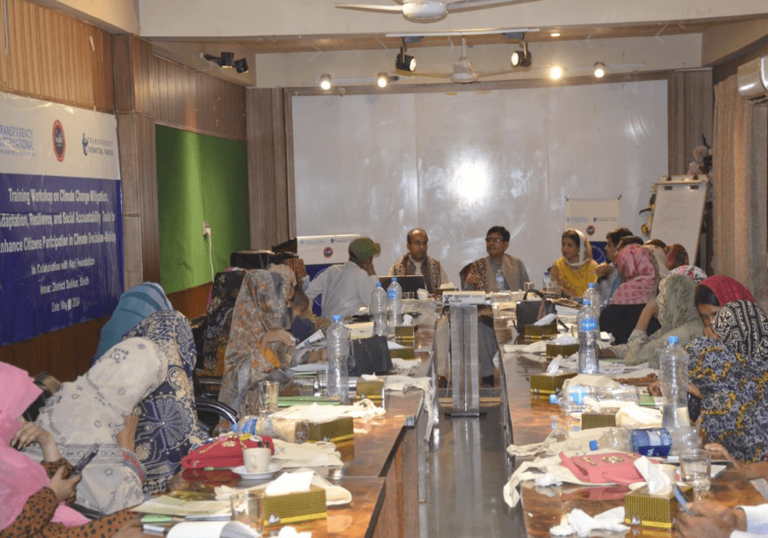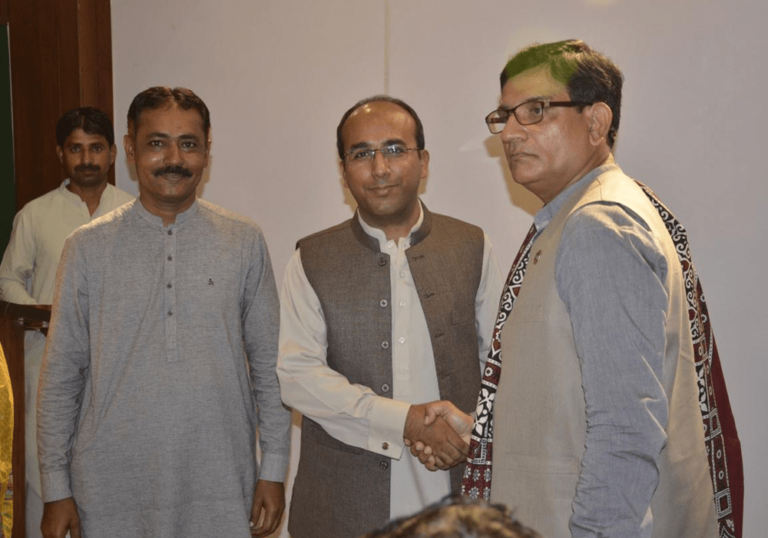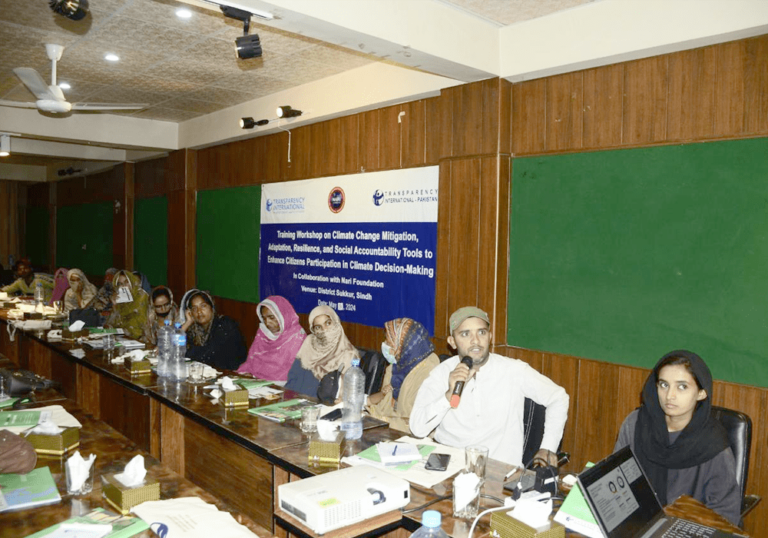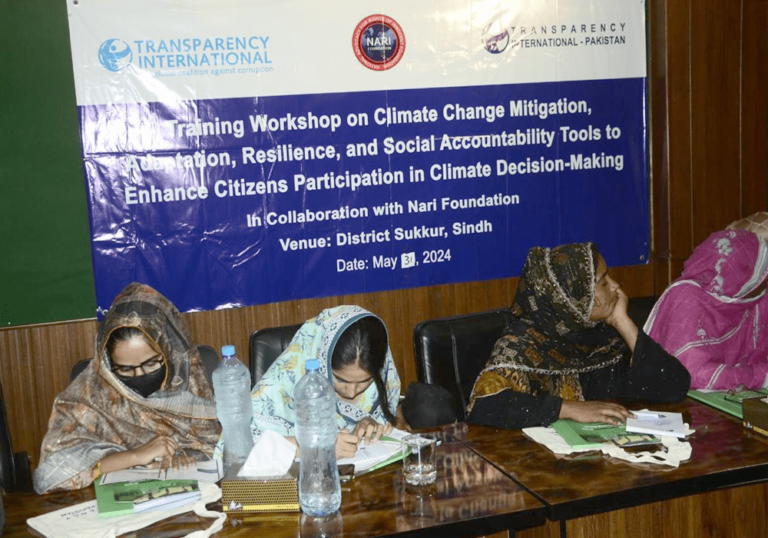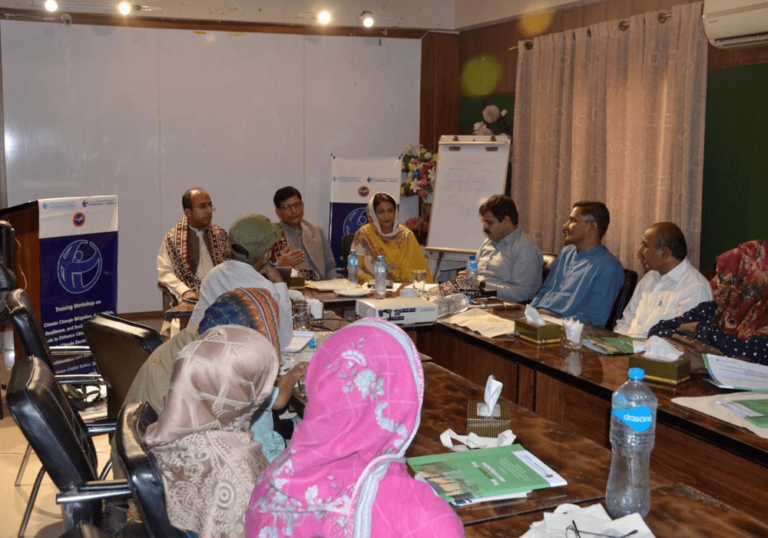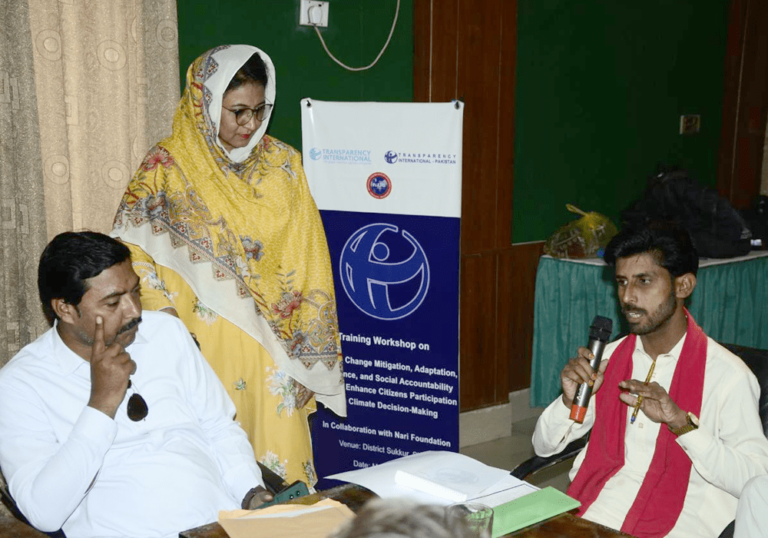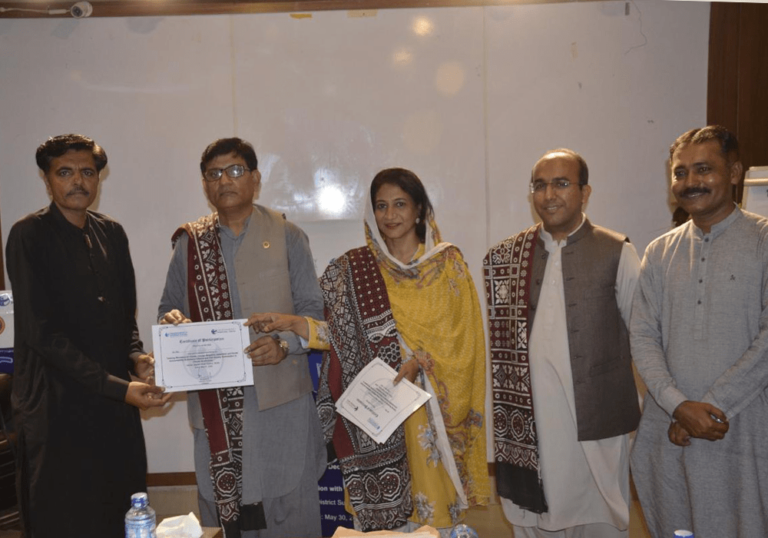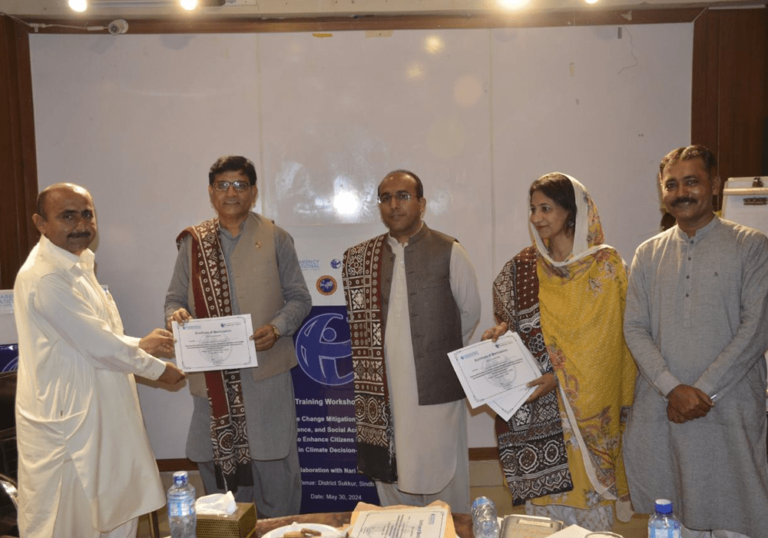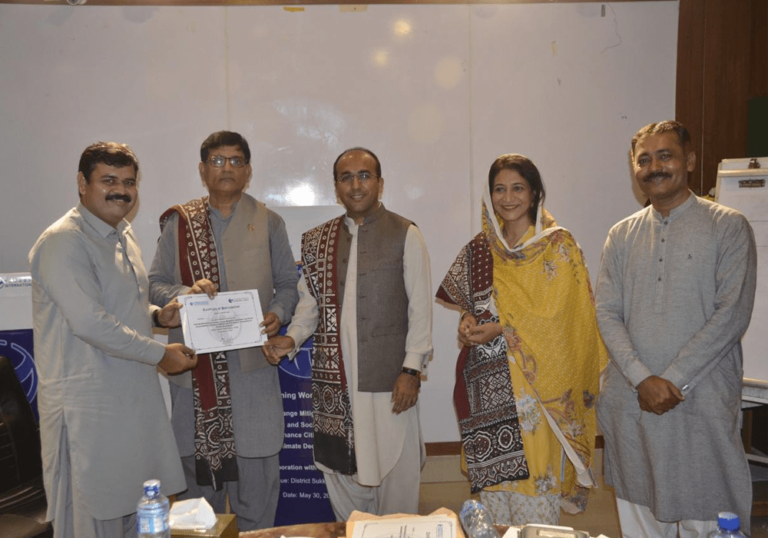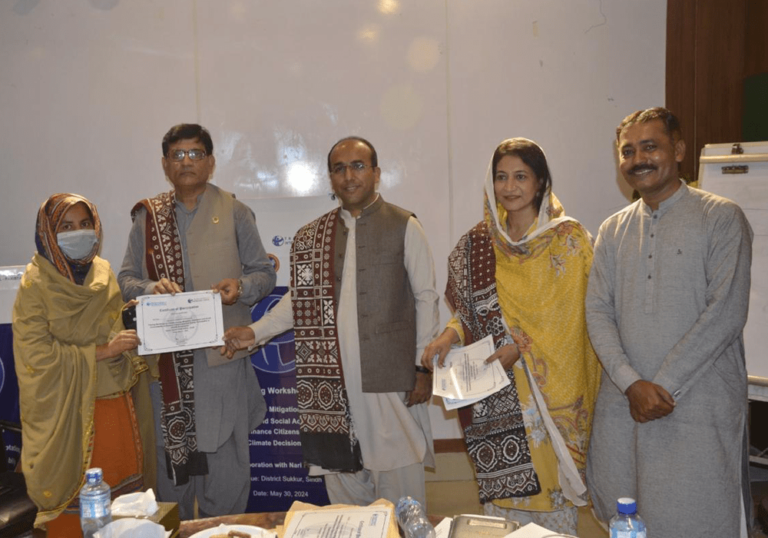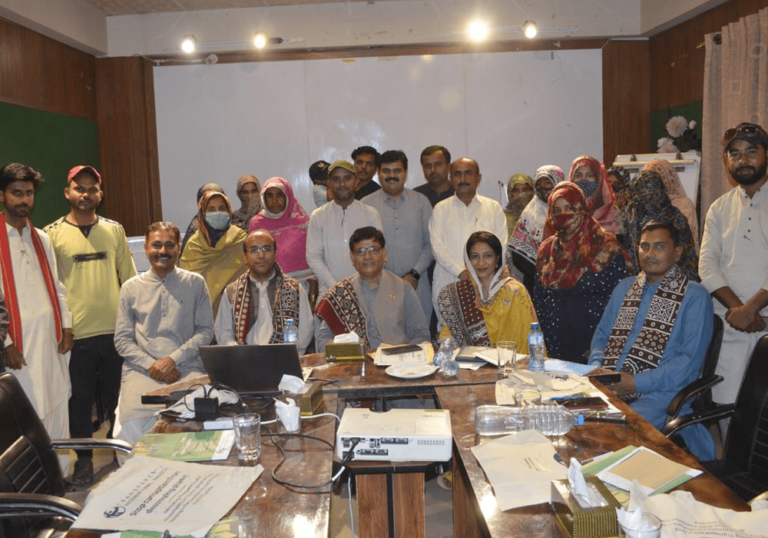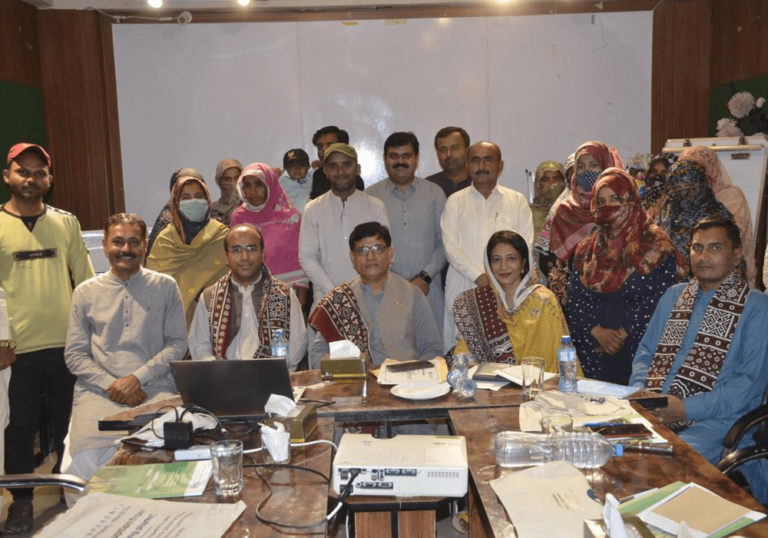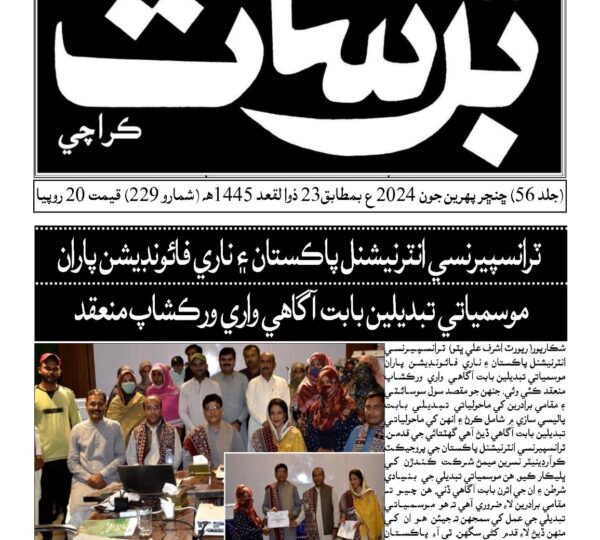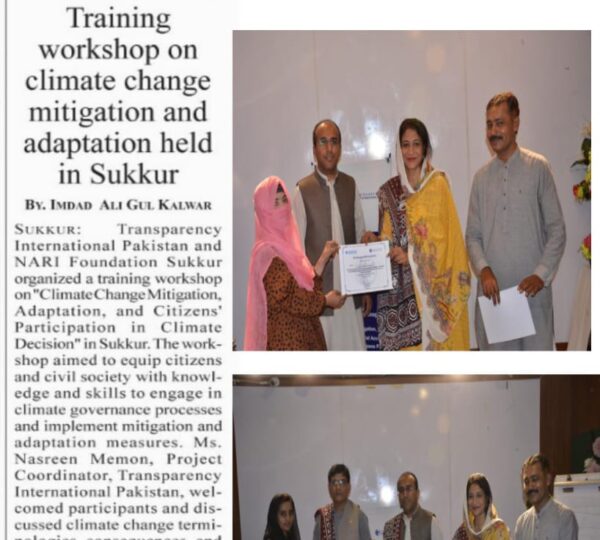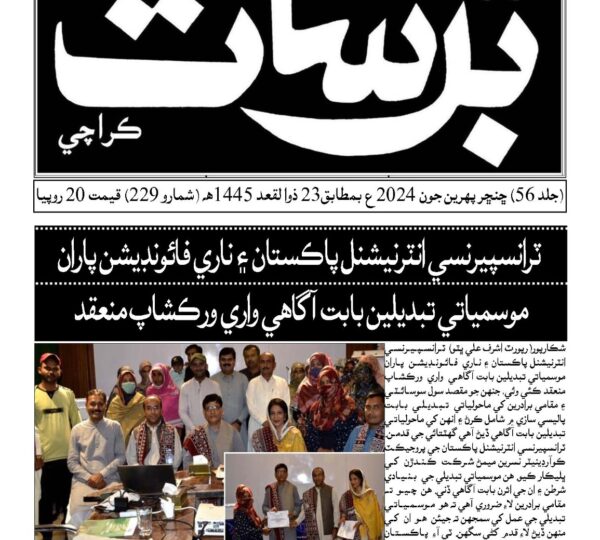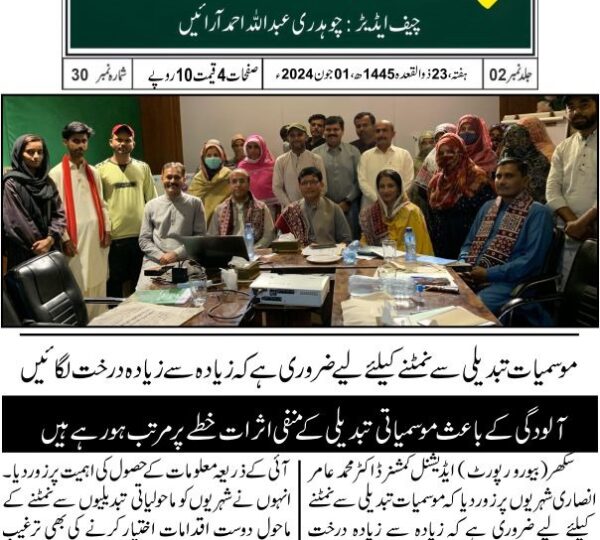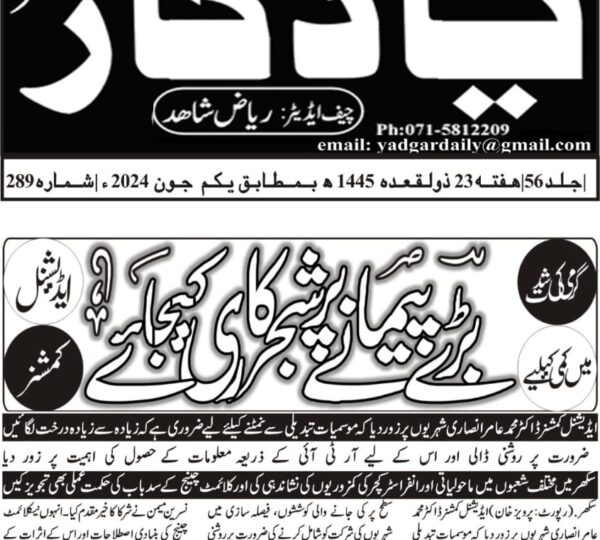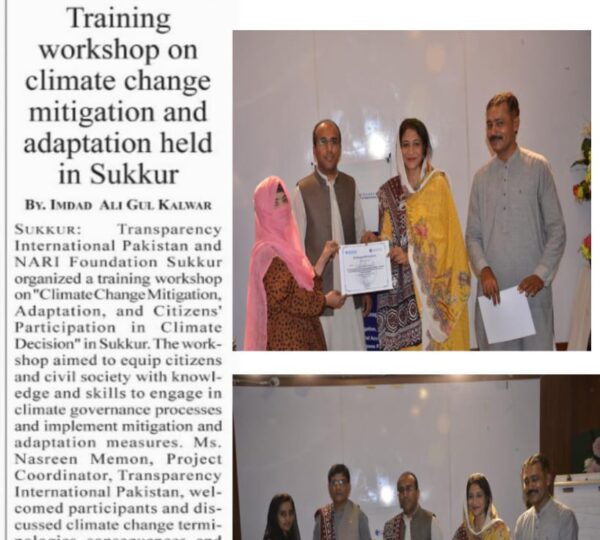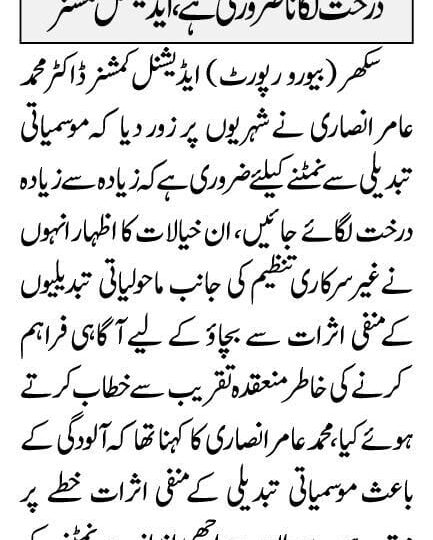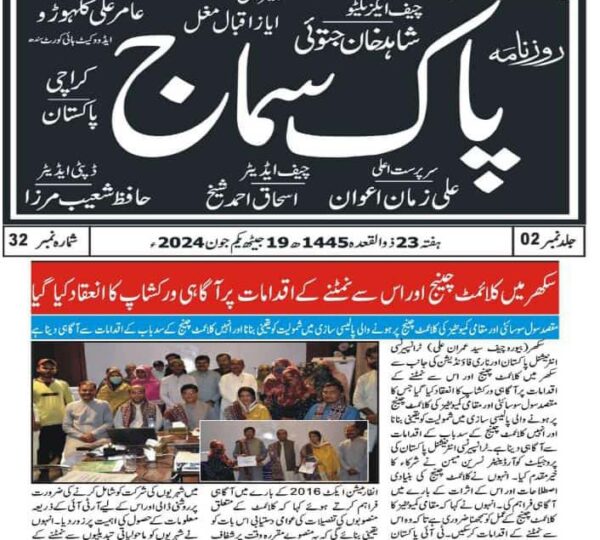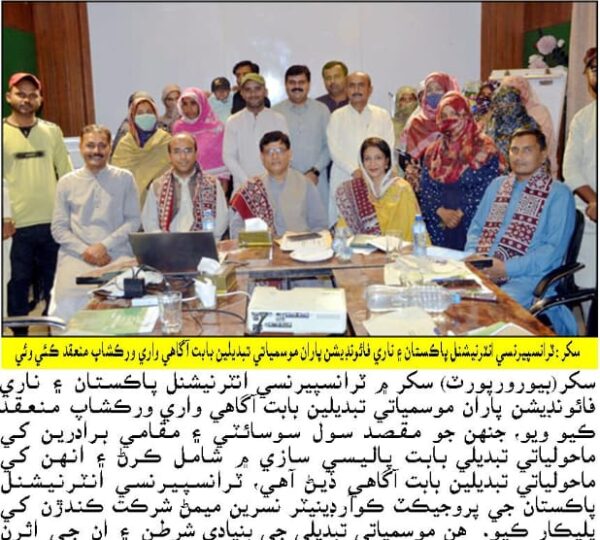- Home
- Training Workshop on Climate Change Mitigation, Adaptation, and Social Accountability to Enhance Citizens and Civil Society Participation in Climate Governance
Training Workshop on Climate Change Mitigation, Adaptation, and Social Accountability to Enhance Citizens and Civil Society Participation in Climate Governance
Training Workshop on Climate Change Mitigation, Adaptation, and Social Accountability to Enhance Citizens and Civil Society Participation in Climate Governance
Date: Friday, May 31, 2024
Venue: Decent Hotel, Sukkur-Sindh
Transparency International Pakistan organized a Training Workshop on Climate Change Mitigation, Adaptation, and Social Accountability to Enhance Citizens and Civil Society Participation in Climate Governance. The event was held on Friday, May 31, 2024, at Decent Hotel, Sukkur-Sindh. Around 50 participants (12 women, 38 men) participated in the event.
Mr. Anwar Mehar, Executive Director of the NARI Foundation, welcomed participants and highlighted the importance of collaboration. He emphasized that citizens and civil society can play a crucial role in tackling climate change, especially for vulnerable communities like Sukkur, which suffered immensely from the 2022 floods.
Ms. Nasreen Memon, Project Coordinator highlighted that the aim of the workshop is to train participants on how to identify and report environmental issues, including potential corruption related to climate initiatives. Additionally, it seeks to enhance knowledge and understanding of mitigation strategies for climate change, adaptation approaches to adjust to current climate impacts, and social accountability measures for holding institutions responsible for climate action, accountable.
She elaborated on the work of Transparency International Pakistan in promoting inclusive and transparent climate responses. She highlighted that TI Pakistan is enhancing the capacity of the communities in calamity-hit districts, including Sukkur to raise awareness about climate change, its effects, and tools for citizen participation. She addressed the specific vulnerabilities of Sukkur due to its arid climate, water scarcity, and susceptibility to heatwaves. Given the region’s reliance on agriculture, changes in precipitation patterns pose a significant risk to food security and livelihoods.
She also informed the participants, many of whom belonged from communities most affected during 2022 floods, of the basics of climate change and its consequences. She explained that climate change refers to long-term shifts in temperature and weather patterns in any place. While Earth’s climate naturally changes over time, the current rate of change is extremely rapid and primarily caused by human activities. She shared that the main cause of climate change is the burning of fossil fuels (coal, oil, gas). Ms. Nasreen provided participants with an overview of the Sindh Climate Change Policy (SCCP) 2022. The policy’s vision is to establish a framework for sustainable socio-economic development in Sindh that integrates climate change considerations across all sectors. It aims to enhance the well-being of the population by promoting climate-resilient practices and reducing greenhouse gas emissions. She highlighted that the SCCP emphasizes both adaptation and mitigation as well as community consultation. She highlighted involving communities in climate decision-making is crucial for building climate-resilient future for its citizens.
Next, Mr. Kashif Ali, Executive Director, TI Pakistan talked about Community Participation and Civil Society Oversight for Climate Action. He highlighted that ensuring transparency and accountability in climate financing is crucial and emphasized that community and civil society participation are the cornerstones of achieving this. When financial transactions related to climate projects are open and accessible, everyone can see how many projects are being funded and how much money is being spent. This allows people to understand the system and hold the government and responsible individuals accountable. He highlighted the key role of oversight bodies including civil society in identifying lack of transparency in the implementation of the projects and advocating for action.
Next, Mr. Anwar Ali Mahar spoke on The Sindh Transparency and Right to Information Act, 2016, and Disclosure of Climate Data. He highlighted that public consultation in climate-related projects is the key to effective and transparent climate response. He encouraged participants to keep an eye on the government’s work around climate change at the local level and make their voices heard. One of the tools to participate in climate decision-making is the Right to Information. He briefed the participants on how to write an RTI request and encouraged communities that RTI empowers community members to hold climate-related departments accountable and raise their voices against irregularities. He informed the community about Transparency International Pakistan’s Advocacy and Legal Advice Center (ALAC). ALAC serves as a dedicated resource for victims and witnesses of corruption, providing essential guidance and support. This initiative reflects TI Pakistan’s commitment to aiding those directly impacted by environmental corrupt practices.
The training workshop was concluded with Dr. Muhammad Amir Ansari, Additional Commissioner-I, Sukkur Division. He outlined government’s commitment towards social accountability and shared the work the district administration is doing to deal with the challenges posed by climate change. He also emphasized on the urgency of proactive measures, detailing various mitigation strategies aimed at reducing greenhouse gas emissions and enhancing sustainable practices.
The training session concluded with the community and civil society organizations expressing gratitude to TI Pakistan, emphasizing the importance of collective efforts in addressing transparency, accountability and civic engagement in climate action.


